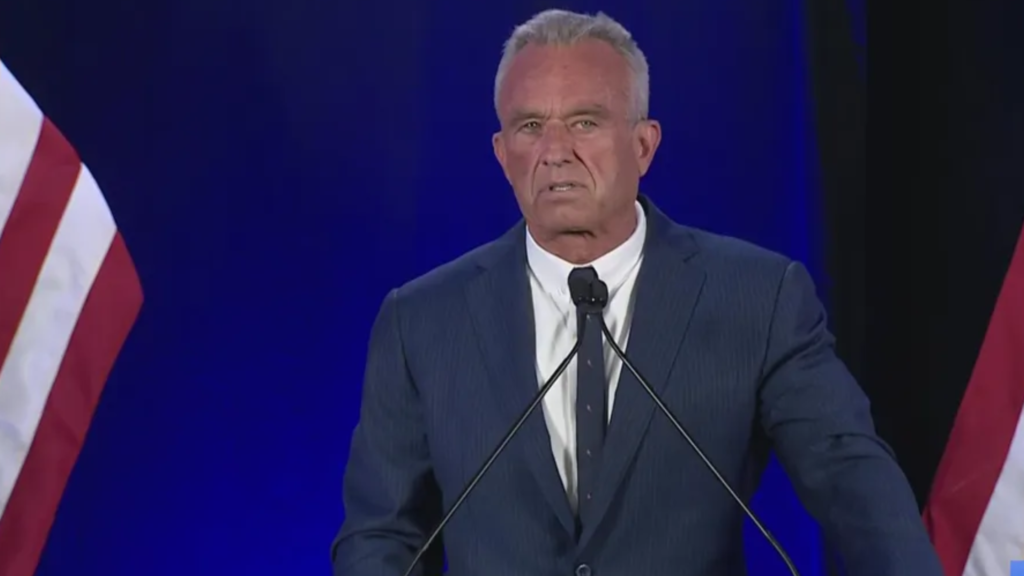Introduction
The debate over water fluoridation is as longstanding as it is contentious. Among its critics, Robert F. Kennedy Jr. has emerged as a prominent voice, raising concerns about potential health risks and advocating for a closer look at this public health practice. As water fluoridation remains widespread in the United States, understanding Kennedy’s perspective, the arguments he brings forward, and the broader science around fluoridation is crucial to comprehending the ongoing public discourse. This article explores Robert Kennedy Jr.’s stance on water fluoridation, the scientific debates surrounding it, and how his advocacy has impacted policy and public opinion.
Robert F. Kennedy Jr. is known for his environmental and health advocacy, focusing on areas where public health policies intersect with environmental and ethical concerns. Kennedy, an attorney and environmental activist, has voiced skepticism toward water fluoridation, questioning its necessity and safety. While health authorities have widely accepted fluoridation as a preventative measure against dental decay, Kennedy challenges the potential adverse effects that fluoride may have on human health.
In this in-depth exploration, we’ll discuss Kennedy’s concerns regarding water fluoridation, evaluate the scientific evidence supporting both sides and analyze how this debate affects public health policies.

Understanding Water Fluoridation: What It Is and Why It’s Used
Water fluoridation is the controlled addition of fluoride to a public water supply to prevent tooth decay. It was initially adopted in the mid-20th century, this practice aimed to improve dental health across populations. Since then, fluoridation has been recommended by the American Dental Association (ADA), the World Health Organization (WHO), and the Centers for Disease Control and Prevention (CDC) as a cost-effective, population-wide intervention.
Supporters argue that water fluoridation is a successful public health measure with minimal risks, citing studies that suggest a significant reduction in tooth decay in communities where fluoride is added to water. However, critics like Robert Kennedy Jr. raise questions about the overall impact of fluoride on various aspects of health, including potential neurological effects and cumulative toxicity.
Robert Kennedy Jr.’s Concerns Regarding Water Fluoridation
Robert Kennedy Jr. has raised several points against water fluoridation, focusing on concerns about safety, health risks, and the ethics of medicating populations without individual consent. His stance reflects a broader questioning of fluoride’s impact, especially in light of emerging research that suggests fluoride may have unintended health effects beyond dental health.
Safety Concerns and Health Risks
Kennedy argues that water fluoridation may pose a risk to health, particularly with long-term exposure. Studies have linked high levels of fluoride consumption to various health issues, including skeletal fluorosis, thyroid disruption, and, more recently, concerns over neurological impacts. Kennedy and other fluoridation critics highlight these potential risks as reasons for caution, suggesting that fluoride in water may not be as safe as it is often portrayed.
Ethical and Informed Consent Issues
A significant part of Kennedy’s argument against water fluoridation centers on the issue of consent. Unlike other medications or treatments, fluoridation is administered to entire populations without individual choice. Kennedy argues that this practice infringes upon individuals’ rights to make informed decisions about their health. This ethical dimension of fluoridation has fueled his advocacy, framing water fluoridation as a public health policy that disregards personal autonomy.
Questioning the Necessity of Fluoride in Water
Kennedy and others question whether water fluoridation is necessary at all, especially given that fluoride is now widely available in dental products like toothpaste and mouthwash. The increased availability of fluoride in other forms raises questions about whether water fluoridation remains a necessary public health measure. Kennedy suggests that people can adequately maintain their dental health through targeted use of fluoride products without the need for systemic fluoride exposure through drinking water.

Examining the Scientific Evidence: What Does Research Say About Fluoride and Health?
The scientific debate surrounding fluoride is complex, with studies presenting evidence both in favor of and against fluoridation. Understanding the broader picture requires examining the range of research on fluoride’s impact on dental health, its systemic effects, and the limitations of existing studies.
Dental Health Benefits
The primary justification for water fluoridation is its effectiveness in reducing dental decay. Studies indicate that communities with fluoridated water supplies experience lower rates of cavities compared to those without. Fluoride works by strengthening tooth enamel and making it more resistant to acid, which helps prevent decay. These benefits are particularly noted in children, making fluoridation a key focus in public health efforts to improve dental health outcomes in lower-income communities.
Systemic Health Concerns
While fluoride’s dental benefits are widely acknowledged, concerns remain about its effects on overall health. Research has linked excessive fluoride consumption to conditions like skeletal fluorosis, a painful bone disease caused by high fluoride exposure. Kennedy and others have also raised concerns about potential neurotoxic effects, particularly in children. Some studies suggest a possible association between high fluoride exposure and lower IQ scores in children. However, these studies often involve areas with fluoride levels significantly higher than those found in fluoridated water supplies in the United States.
Potential Impact on Thyroid Function and Bone Health
Research has also investigated fluoride’s impact on thyroid function and bone health. Fluoride exposure has been shown to affect thyroid function, particularly at high levels. It has raised concerns for individuals with existing thyroid conditions, as fluoride exposure could exacerbate hypothyroid symptoms. Additionally, some studies indicate that fluoride may contribute to bone density changes, increasing fracture risk in older adults.
While these findings do not conclusively prove that fluoride in drinking water is harmful, they raise questions that Kennedy and others believe warrant further investigation.
How Robert Kennedy Jr.’s Advocacy Has Influenced Public Discourse on Fluoridation
Robert Kennedy Jr.’s stance against water fluoridation has brought increased attention to the issue, sparking discussions around public health policy and individual rights. His advocacy highlights the ethical considerations around fluoridation, pushing for policies that prioritize transparency and informed consent. Kennedy has called for further research into the long-term effects of fluoride exposure and has advocated for alternatives to mass water fluoridation.
Public Awareness and Health Policy Impact
Kennedy’s efforts have contributed to heightened public awareness and have influenced policy debates in various communities. His advocacy has led some municipalities to reconsider their fluoridation practices, with some opting to reduce fluoride levels or eliminate fluoridation. As more people become aware of potential health risks, the debate over fluoridation grows, emphasizing the need for comprehensive studies and transparent communication of risks.

Alternative Approaches to Dental Health Without Fluoridation
Kennedy and other fluoridation critics argue that there are alternative methods for promoting dental health without systemic fluoridation. These include targeted fluoride use through toothpaste and mouthwash, dietary improvements, and education on dental hygiene practices. By encouraging these approaches, advocates believe communities can achieve similar dental health outcomes without potential risks associated with fluoridated water.
Evaluating the Future of Water Fluoridation: Questions and Considerations
The ongoing debate around water fluoridation reflects broader questions about public health interventions, individual rights, and scientific transparency. As more research emerges, the question remains: Is water fluoridation a necessary and ethical practice, or should communities seek alternatives?
Kennedy’s advocacy has encouraged a re-examination of water fluoridation, emphasizing the importance of informed consent and the need for evidence-based policies. While fluoridation remains widely accepted, Kennedy and others believe that continuous scrutiny and research are essential to ensure public health policies serve the best interests of all individuals.
Conclusion: The Role of Robert Kennedy Jr. in the Fluoridation Debate
The influence of Robert Kennedy Jr. on the water fluoridation debate cannot be understated. His advocacy has brought crucial issues to light, pushing for a reconsideration of a longstanding public health practice. The Robert Kennedy Jr. water fluoridation debate has become a focal point for those questioning the balance between public health benefits and individual autonomy.
Through his calls for greater research, transparency, and respect for individual rights, Kennedy has reshaped the conversation around water fluoridation, challenging communities to look closely at this practice and consider alternatives. As the debate continues, his influence serves as a reminder of the need for vigilance, informed decision-making, and a commitment to health policies that are both safe and respectful of individual choice.

